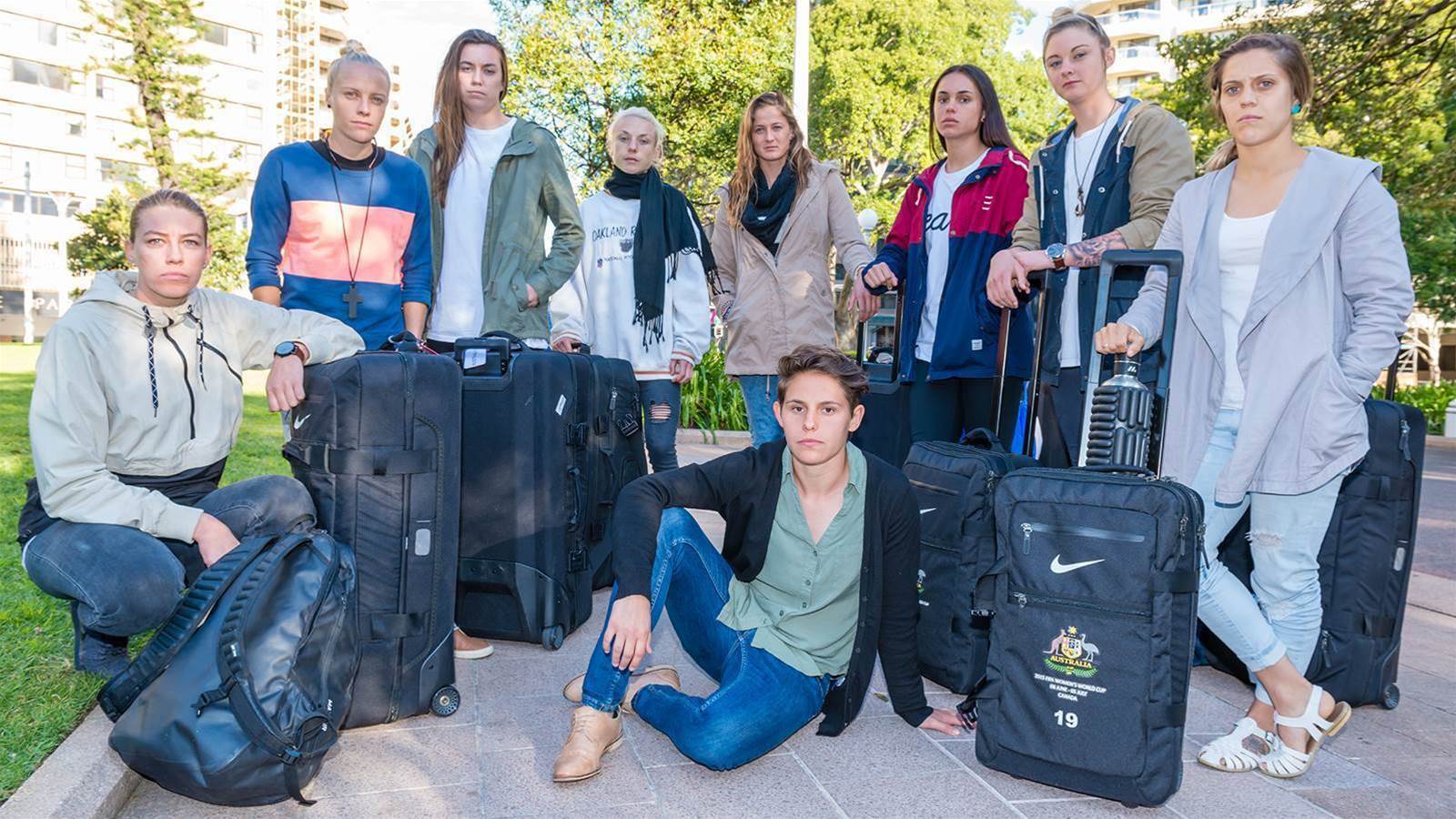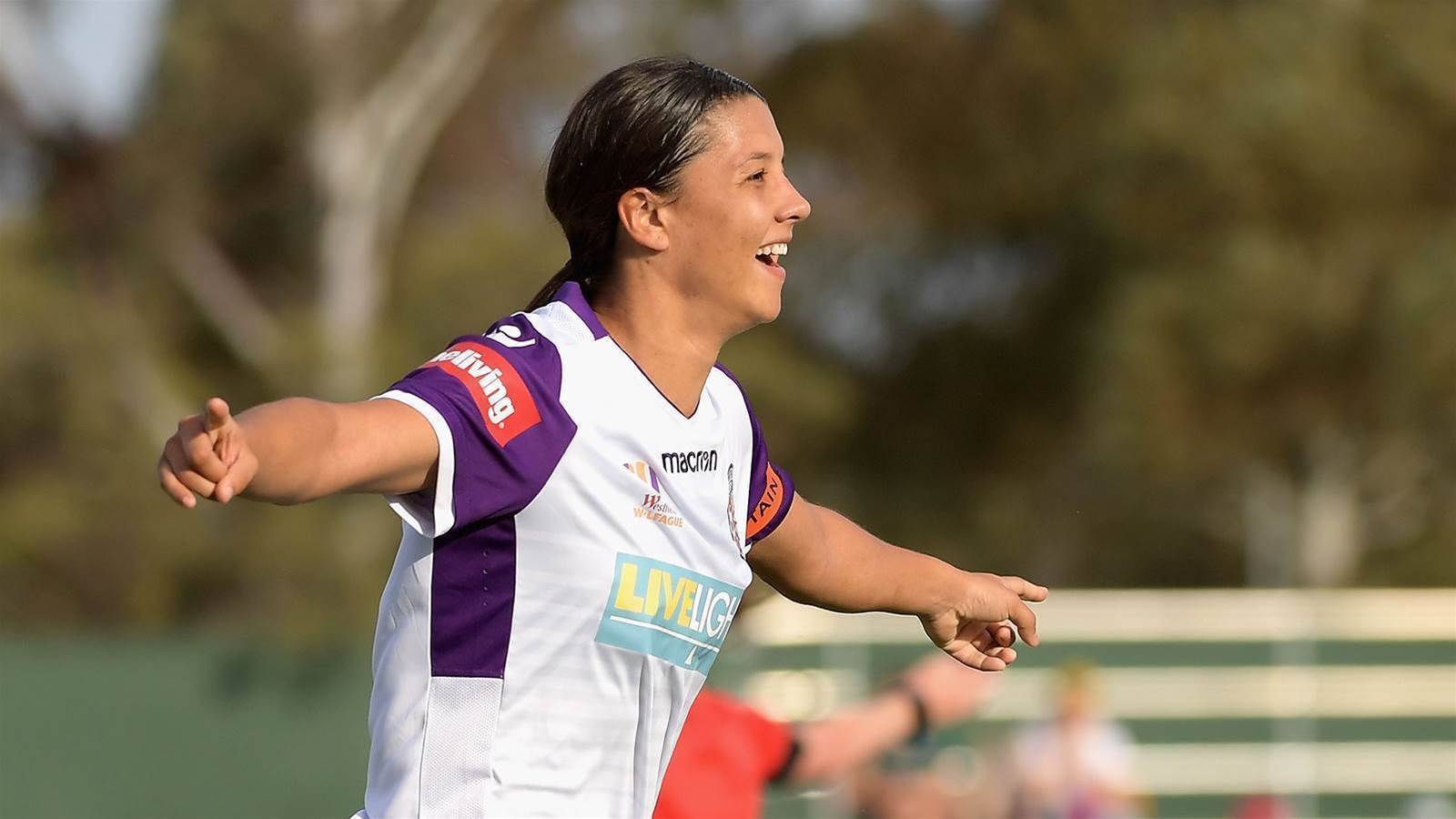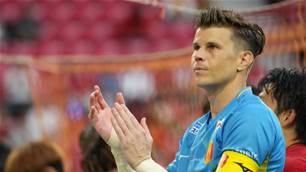She may be the highest paid female footballer in Australia, but Sam Kerr has vowed to continue fighting the good fight for female athletes around the world.
Kerr’s history-making marquee W-League contract was a significant victory for women’s football in Australia, but the disparity between men and women’s salary remains huge in the world game.
In 2017, a salary survey found that Brazilian star Neymar earns the same amount as the combined salaries of each and every player in the top seven women leagues in the world.
But Kerr is adamant that most female footballers don’t want to be paid tens of millions; rather, they’d just like their wages to justify the physical demands of their occupation.
"It’s a subject that we’re never going to get away from," Kerr said. "Some women are still earning below the minimum wage and anyone with a brain knows that’s not right for the amount they give up to play football.
"People think we give up a couple of hours a week to play on the weekend which is all they see on TV, but there’s so much more hard work that goes into it on a daily basis.
"The gap between men and women definitely needs to close, but I still think the public perception is a little off.
"We’re not asking to be paid millions and millions of dollars like men, we just want to be paid fairly and correctly for the amount of work we put in."

The Matildas took matters into their own hands back in 2015 when they boycotted a tour of the USA in the hope of improving player earnings and working conditions.
Throughout the ordeal, Matildas defender Laura Alleway, 25 at the time, revealed she was earning below the minimum wage despite training full time.
While the boycott proved a success for the top Matildas, their new and improved $41,000 average yearly salary still pales in comparison to what players in the men’s national team earn annually.
In spite of this, Kerr remains hopeful that the W-League and Matildas can one day become an ingrained part of Australia’s rich sporting culture.
"I hope women’s football can – I wouldn’t be giving up my life if I didn’t believe women’s sport was heading in the right direction," she said.
"Obviously there’s still a long way to go but it’s important the Matildas continue to succeed and the quality continues to improve in the home and away W-League season.
"So much of the W-League’s recent growth comes down to the success of the Matildas and the W-League is helping to produce our national team players."
After three years in the US, Kerr’s return to Australian football with Perth Glory comes as a timely boost for the W-League in its 10th season.
The homecoming follows a Golden Boot season in the National Women's Soccer League, which earned her offers from the likes of Chelsea and Barcelona.
While the NWSL is widely considered the most competitive women’s national league in the world, Kerr believes the W-League isn’t far off, and the chance to return to Perth was too strong to pass up.

She added: "It’s actually really similar; the main difference is that every player in the U.S is a professional, so the standard over there is obviously a little bit higher.
"But I love playing in Australia; it makes me proud knowing that I along with every other Matilda impacted the growth of the W-League at some point in our careers.
"My family would also have to pay thousands of dollars to travel to watch me play in the U.S but now they can watch me at home.
"The beaches and coffees aren’t bad either."
Kerr took out this years ESPY award for Best International Women’s Soccer Player.
Related Articles

Leckie seals new marquee deal as Good, Maclaren head to Asia
.jpeg&h=172&w=306&c=1&s=1)
Socceroos prodigy returns to A-League after horror run













